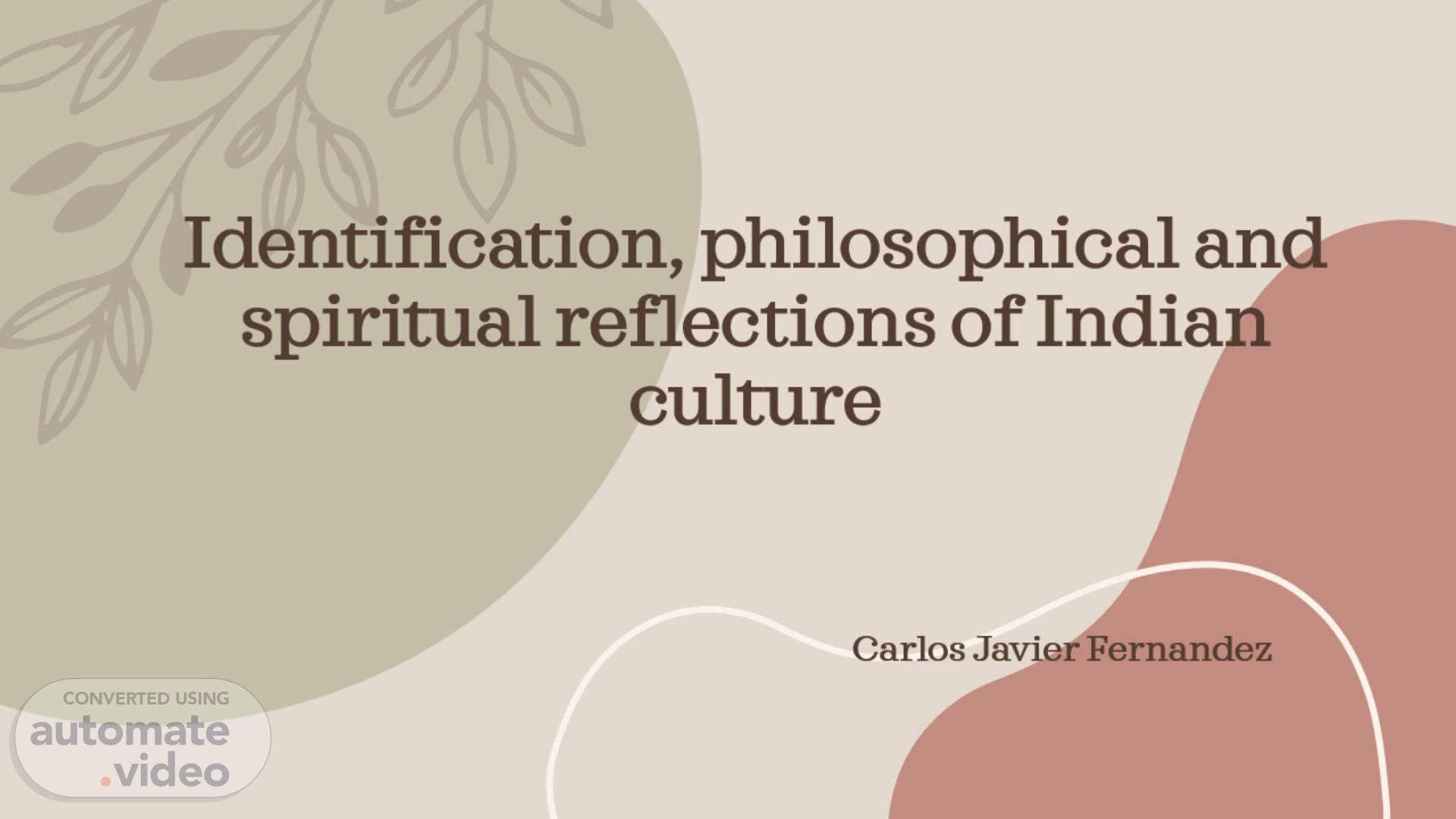
Identification, philosophical and spiritual reflections of Indian culture Carlos Javier Fernandez
Scene 1 (0s)
Identification, philosophical and spiritual reflections of Indian culture Carlos Javier Fernandez.
Scene 2 (7s)
Content.. The act of philosophizing in the West Darshana in the East Key relationships and differences.
Scene 3 (16s)
The act of philosophizing in the West. [image].
Scene 4 (23s)
In the West, the act of philosophizing has been immersed in very clear domains that allow the discernment of truth and have historically been key to the relentless search for answers; these domains are reason, logic, and argumentation. For this reason, since ancient Greece with its great thinkers such as Socrates, Plato, and Aristotle, philosophy was described as the love of wisdom (philo‑sophia), that is, an unceasing quest to understand the nature of things, knowledge, morality, existence, and thought itself..
Scene 5 (52s)
Darshana in the East. [image].
Scene 6 (59s)
[image] In the Ea.$ the of understanding the world and seekir7E the truth about what surrounds us revolve around the Sanskrit term "Danhana" This word is often rendered as "vision" "paint of view," but within the philosc:phiæl spiritual traiåitions of India—Hinduism Pillddhism, Jainism denotes a dean direct seeir7E of reality. Unlike the Western approach, which emphasizes knowing something through logic, and ärgurnentation, Eastern inquiry is grounded primuily in direct experience. It is rat enough merely to possess knowledge ane must utu,llly see or experience it firstlund. This immediate experiential insight is pursued as a means to attnin liberatic:n from sufferir7E and ignorance (Nirvana), r,lther thun to ucumulate abstract knawiedge..
Scene 7 (1m 32s)
Key relationships and differences.
Scene 8 (1m 38s)
Objective. [image]. Western philosophy seeks truth in an objective, understandable, and rational way, whereas in the East truth is pursued through experience and the liberation from suffering. Both aim at truth, but they define it and strive to attain it in completely different manners..
Scene 9 (1m 54s)
Method. Reason and argumentation are the key foundations of knowledge in the West, whereas direct experience, intuition, and practice are the pillars of Eastern culture. However, both employ logic and argumentation..
Scene 10 (2m 7s)
Approach. Western philosophy tends to have a more external and analytical character, whereas Eastern philosophy focuses on the transformation of the human being in a more spiritual and profound way..
Scene 11 (2m 19s)
Observation. Western philosophy looks at things through thought, whereas in the East they observe things based on experience and personal realization.
Scene 12 (2m 30s)
Thank you. [image] d('lJ'l/.